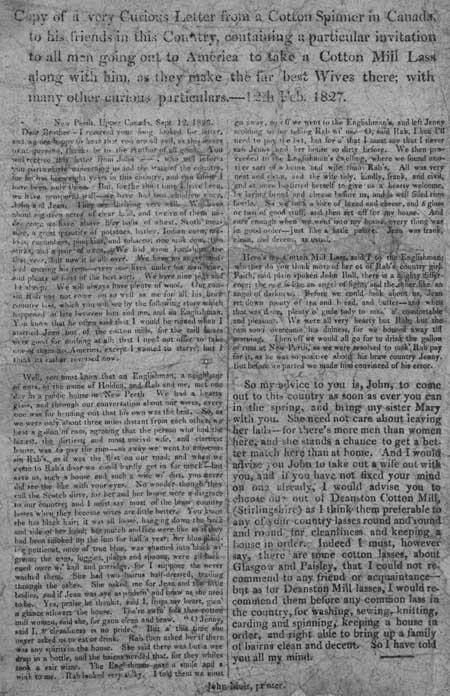Commentary
This broadside begins: 'Copy of a very Curious Letter from a Cotton Spinner in Canada, to his friends in this Country, containing a particular invitation to all men going out to America to take a Cotton Mill Lass along with him, as they make the far best Wives there; with many other curious particulars.' The broadside was published by John Muir of Glasgow and is dated 12th February 1827. Damage to the paper makes it quite difficult to read. Allegedly written by a cotton spinner exiled in Canada, this 'letter' focuses almost entirely on the poor hygiene and housework standards of his friend's wife. The cotton spinner concludes that uncleanliness is a trait of 'country lasses', and that any Scotsman looking for a wife should wed a mill girl. It is likely that the letter is not genuine, but propaganda relating to a debate that was ongoing in Scotland in the early nineteenth century about the role of women. The most famous contributor to this was Elizabeth Hamilton, whose successful didactic novel 'The Cottagers of Glenburnie' (1808) stereotyped Scottish rural wives as lazy and 'clarty'. The latter word became very popular and recurs in this broadside. Broadsides are single sheets of paper, printed on one side, to be read unfolded. They carried public information such as proclamations as well as ballads and news of the day. Cheaply available, they were sold on the streets by pedlars and chapmen. Broadsides offer a valuable insight into many aspects of the society they were published in, and the National Library of Scotland holds over 250,000 of them.
View Transcription | Download PDF Facsimile
|
 |
Date of publication:
1808-1827 shelfmark: L.C.Fol.73(094)
 View larger image
View larger image
|


